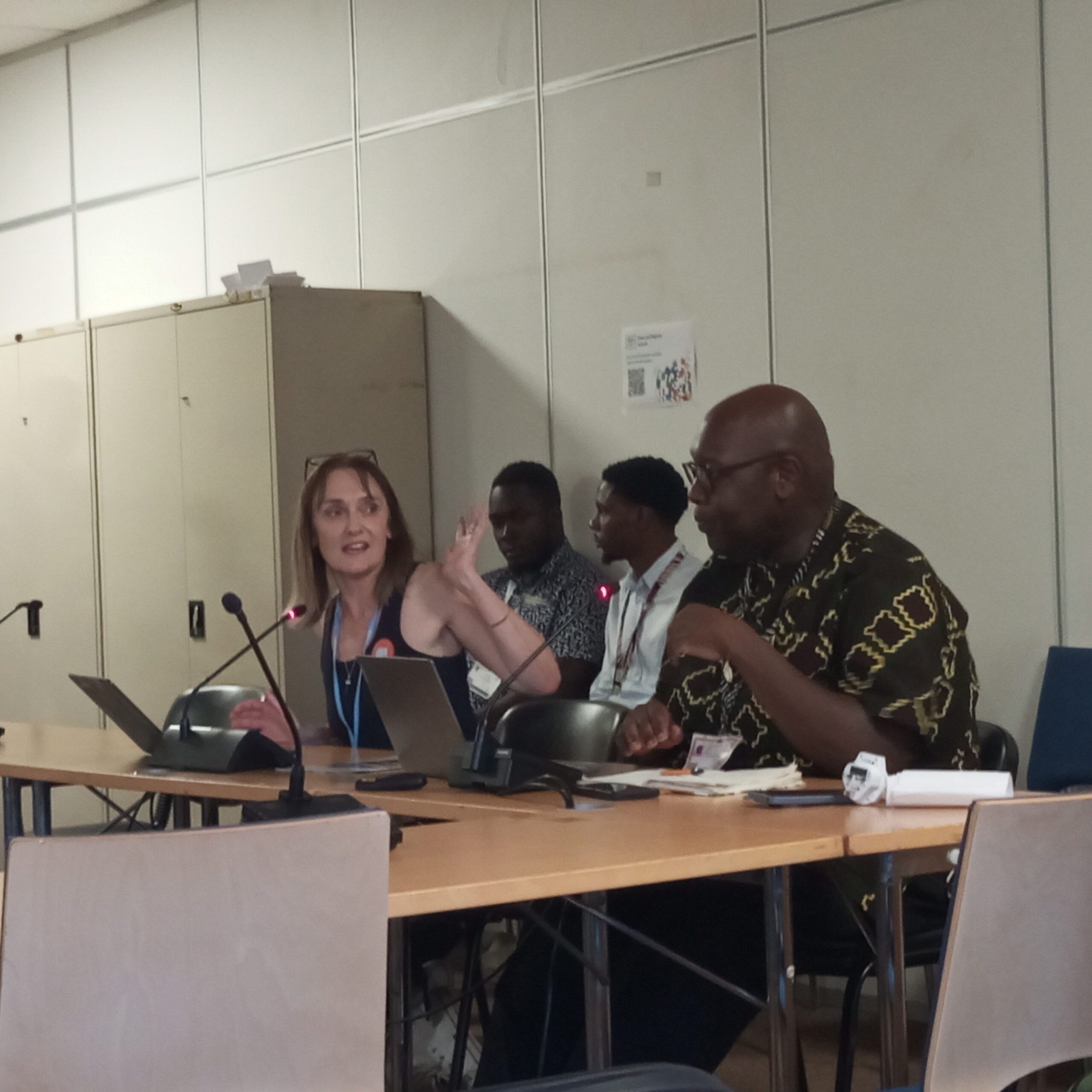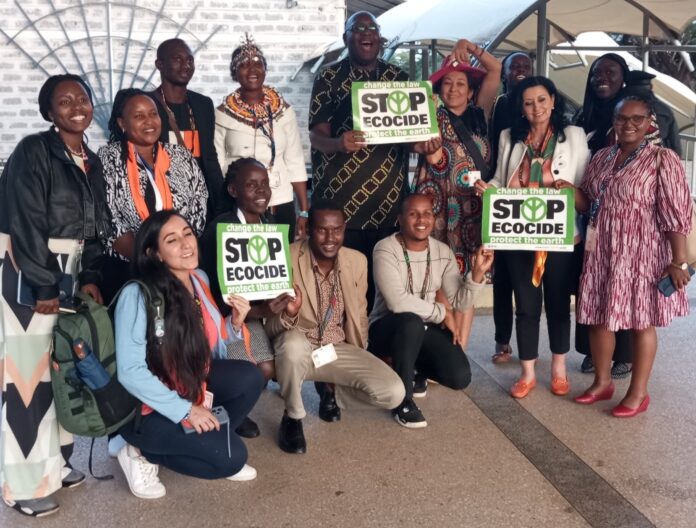By Lenah Bosibori
Nairobi, Kenya: Following the conclusion of UNEA-6 in Nairobi, a civil society organization has called for stringent measures to hold individuals accountable for crimes against nature. The group states that perpetrators causing environmental damage and engaging in malicious destruction must face legal consequences to curb rampant environmental degradation and foster accountability.
James Gondi, the High-Level Coordinator of Ecocide Africa, addressed attendees at a side event during UNEA-6, emphasizing the organization’s commitment to addressing the triple planetary crisis of biodiversity loss, pollution, and climate change by advocating for individual accountability.
“In holding individuals criminally responsible for crimes against nature, we can significantly deter the widespread environmental damage witnessed in regions such as the Niger Delta and Limpopo in the Democratic Republic of Congo,” stated Gondi.
The sixth session of the United Nations Environment Assembly (UNEA-6), convened by the United Nations Environment Programme (UNEP) at its headquarters in Gigiri, saw the participation of more than 4,000 delegates representing over 180 countries.
This year’s assembly placed a particular emphasis on leveraging Multilateral Environment Agreements (MEAs) to address persistent challenges related to climate change, biodiversity loss, pollution, and waste management.

Gondi clarified the concept of ‘Ecocide’ as encompassing unlawful and wanton acts with the knowledge of causing severe, widespread, or long-term damage to the environment. He emphasized that the initiative is not aimed at targeting specific individuals or organizations but rather at advocating for the establishment of international conventions that hold perpetrators of environmental destruction accountable under criminal law.
“Deterrence is essential in curbing environmental crimes, similar to how it deters conventional crimes like murder and theft. Law plays a pivotal role in this,” Gondi remarked.
The organization intends to bridge international and local legal frameworks by advocating for the incorporation of ecocide laws into national legislation. Gondi highlighted proposed ecocide laws in countries like Kenya and Brazil as crucial steps towards aligning local laws with international criminal statutes concerning crimes against humanity.
Highlighting areas of widespread environmental criminal activities, Gondi pointed to instances such as the pollution of waterways in the Niger Delta and extensive damage caused by mining operations in the Congo and South Africa.
As the global community increasingly grapples with the consequences of environmental degradation, the call for accountability from civil society groups like Ecocide Africa underscores the urgency of addressing environmental crimes at both national and international levels.














